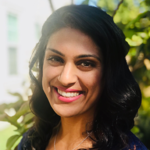

Have a conversation with your employer about some transparency in the practice’s financial benchmarks. It’s a great way to learn what money you are helping to bring into the practice, as well as the profit made from your billings, Hardeep Kataria, OD, of Oxnard, California, says. Set goals for yourself, she says. There can be seasonal changes, so compare your data from the same month in the previous year. Identify and work on areas of weakness. “You are your own biggest competition.”
Not all doctors may be willing to share this data, but when the opportunity exists, “it can be eye-opening to learn what each patient encounter reimburses,” says Victoria Ries, OD, of Philadelphia, Pennsylvania. She would review a monthly report of what she was bringing in so she knew where to focus her efforts in providing the best care while still maximizing productivity.


“As women, we often shy away from asking for what we deserve, but have the conversation and the worst thing the doctor can say is no,” Dr. Kataria says. Dr. Ries adds, “They will offer you something—and you can always go back and counter offer. It’s important to have a great starting salary after school because that is your starting point. Future earnings are often based on earlier salaries, and it’s so hard to go back.”
DEMONSTRATE YOUR WORTH
Associates can increase the value that they bring to their offices by adding or expanding services that can benefit or grow the patient base. Dr. Kataria approached her employer about adding expanded dry eye services to meet the demand among glaucoma patients. “When I go to meetings, I have to speak up for what I want,” she says. “It’s not necessarily a comfortable conversation, but you have to take a seat at the table.” Here’s how she approached it.
Discuss the investment. As an associate, Dr. Kataria knew she had to have a strong presentation since her employer would be making the financial investment to allow her to further expand these services. They discussed the forefront technologies that were FDA-approved, an important factor for both her and her employer, as well studies and trials. Then they talked about how long it would take to pay off those investments.
Be thorough and prepared. Dr. Kataria created a protocol that would allow her to set goals to pay back the investment, starting with identifying patients, building a space to see these patients and the treatment plans. Having a set plan would allow her to dedicate specific days to care for these patients. “Dry eye disease is complex and it requires time and precise education to build trust with your patients because often these procedures are not covered by insurance. It can take time.” By connecting the dots and showing patients how it affects their lives, patients can gain a deeper physiological understanding. “Be constantly cognizant of the numbers in addition to ensuring you are providing appropriate care.”
ASK AND INVITE QUESTIONS
An open line of communication has been in place in both of the offices where Dr. Ries has worked as an associate, and it’s a quality that she says is extremely valuable. “We are a team, and this is a two-way street,” she says. That type of trust is beneficial all throughout the office from when a staff member may turn to her with a billing question or if Dr. Ries wants a second opinion from her employer. “We have no problem saying, ‘Can you come in and let me know what you think?’ and vice versa. You learn so much from asking those questions.” The knowledge exchange benefits the entire office including patients. “It builds patients’ confidence if everyone is on the same page from the very beginning.”
Dr. Kataria also turns questions into educational opportunities with her team of technicians and scribes. “I enjoy being a leader to them, motivating them to learn about eye disease. From all of the different settings and practices where I’ve worked, I’ve seen how invaluable the team of techs is to the patient experience. In my day-to-day life in the office, I’ve enjoyed being a part of that team.”
Read more here from Dr. Kataria and Dr. Ries.



